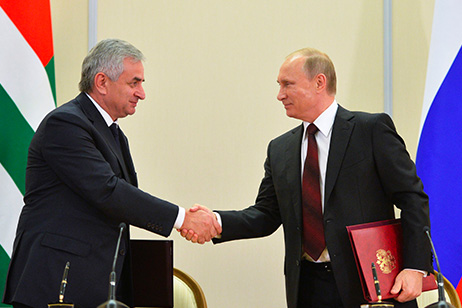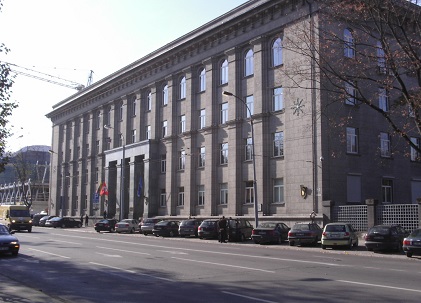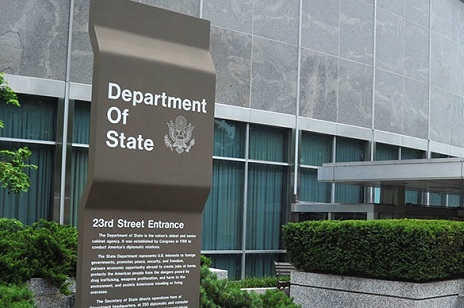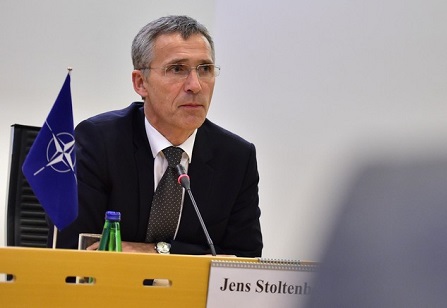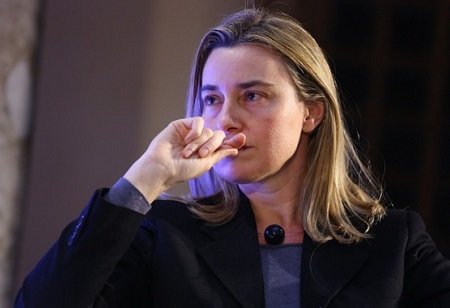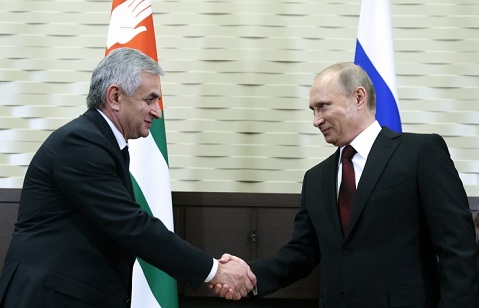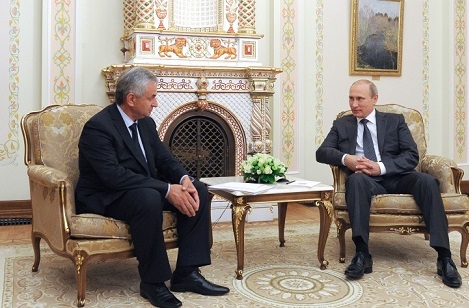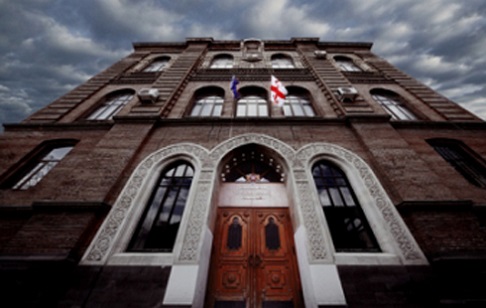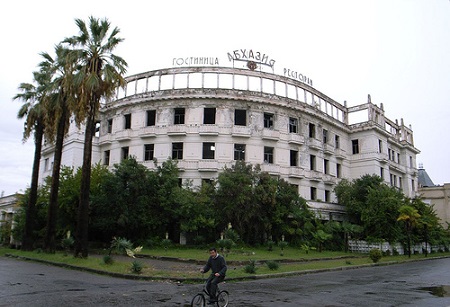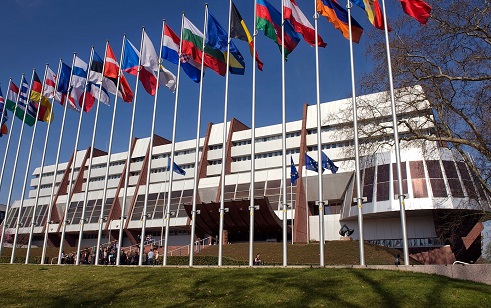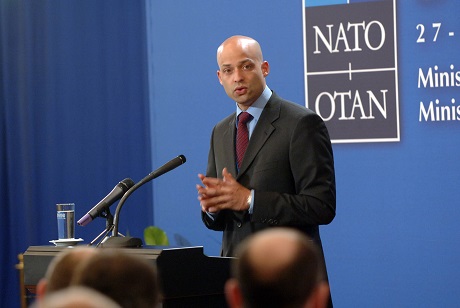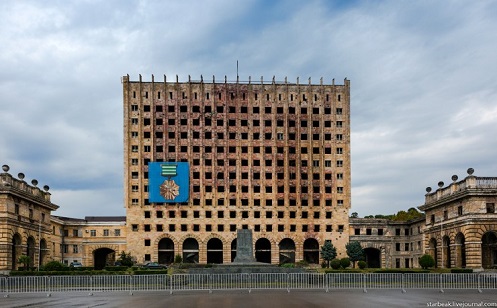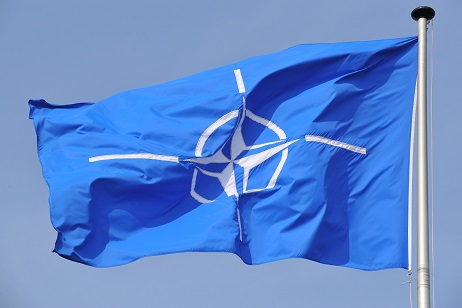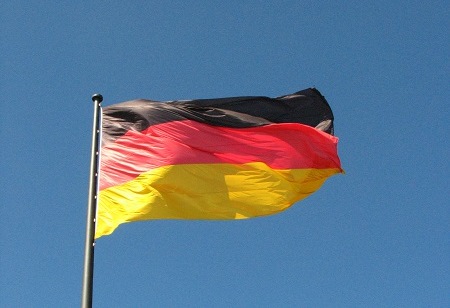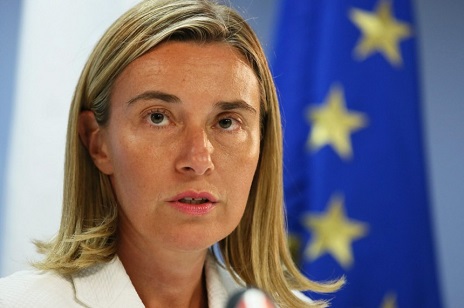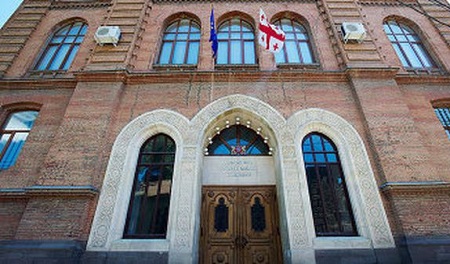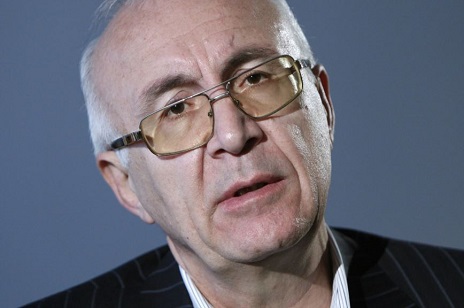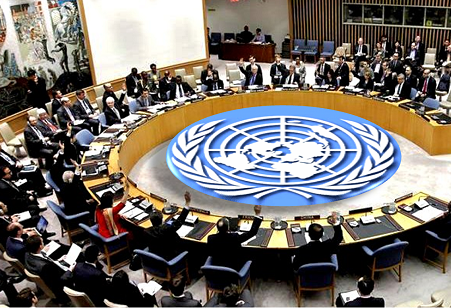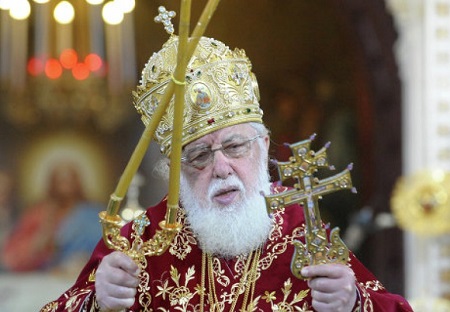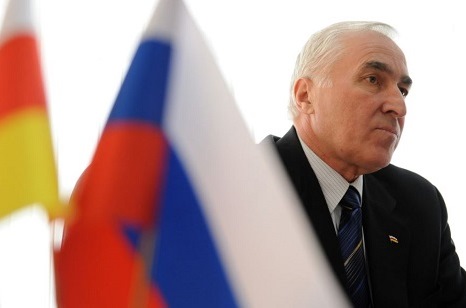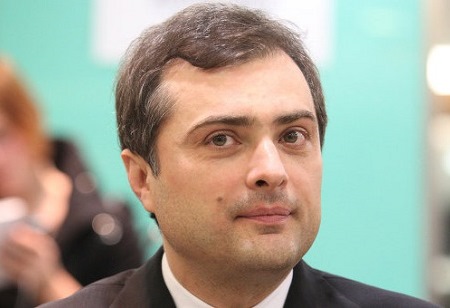Russia rejects accusations of annexing Abkhazia, South Ossetia
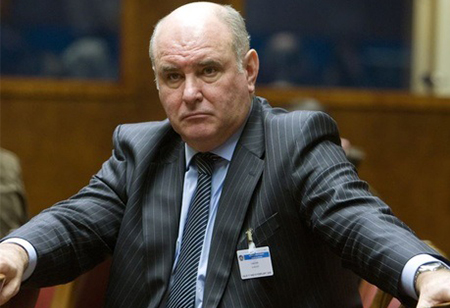
A Russian official has rejected accusations that that newly signed alliance treaty between Moscow and Sokhumi is a step towards the annexation of Georgia's breakaway regions Abkhazia and Tskhinvali (South Ossetia).
Despite the "Alliance and Strategic Partnership” treaty being condemned by Georgia and the international community, which was signed on November 24, Russia’s Deputy Foreign Minister Grigory Karasin was confident "there can be no question about any annexations".
"Abkhazia and South Ossetia have been our partners for six years. We have recognised them as independent and sovereign states,” Karasin said in an exclusive interview with RFE/RL's Current Time program on November 25.
"This is a completely transparent document which is about broadening of interaction in all the areas in order to reinforce the common security space,” Karasin said.
In the interview Karasin said those who believed Russia had some kind of plans of about annexation, absorption and expansion were probably the people who were behind the [EU] Eastern Partnership program.
"It seems that Georgia feels uncomfortable, first and foremost, after those criminal actions which were committed by [ex-President] Mikheil Saakashvili, when it lost one fifth of its territory [after the August, 2008 war],” he said.
The Russia-breakaway Abkhazia treaty, which will come into force on January 1, 2015, outlined creating a "common defence and security space”, "implementing a coordinated foreign policy” and "establishing common social and economic area".
The pact said an armed attack on Abkhazia would be considered an armed attack on Russia, and Russian forces would support Abkhazia defend its borders, and vice-versa.
In addition, the agreement will create the necessary conditions for Abkhazia to become a member of international organisations and associations. It also pledged to expand the list of countries that recognized Abkhazia’s independence.
Karasin said Russia will "continue sparing no effort, nerves, financial expenses" to make sure its neighbours "do not feel endangered".
"We will be helping in terms of the economy and funds where needed," he added.
Meanwhile, in regards to improving Russia-Georgia relations through the informal dialogue between Karasin and the Georgian Prime Minister’s special representative for relations with Russia Zurab Abashidze, Karasin said: "Currently, we are undertaking practical steps to enable interaction in the areas where it is possible in the absence of diplomatic relations. This work is and will be ongoing."
"Everything depends on Georgia here as it was the one who broke diplomatic ties with the Russian Federation and it is not up to us to talk about or initiate reestablishment of diplomatic relations," he added.
The latest dialogue between the two diplomats was held on October 16. Meetings between Abashidze and Karasin have been the only form of regular contact between Russia and Georgia since the two countries broke off diplomatic ties following Georgia’s war in South Ossetia in August 2008.
 Tweet
Tweet  Share
Share

